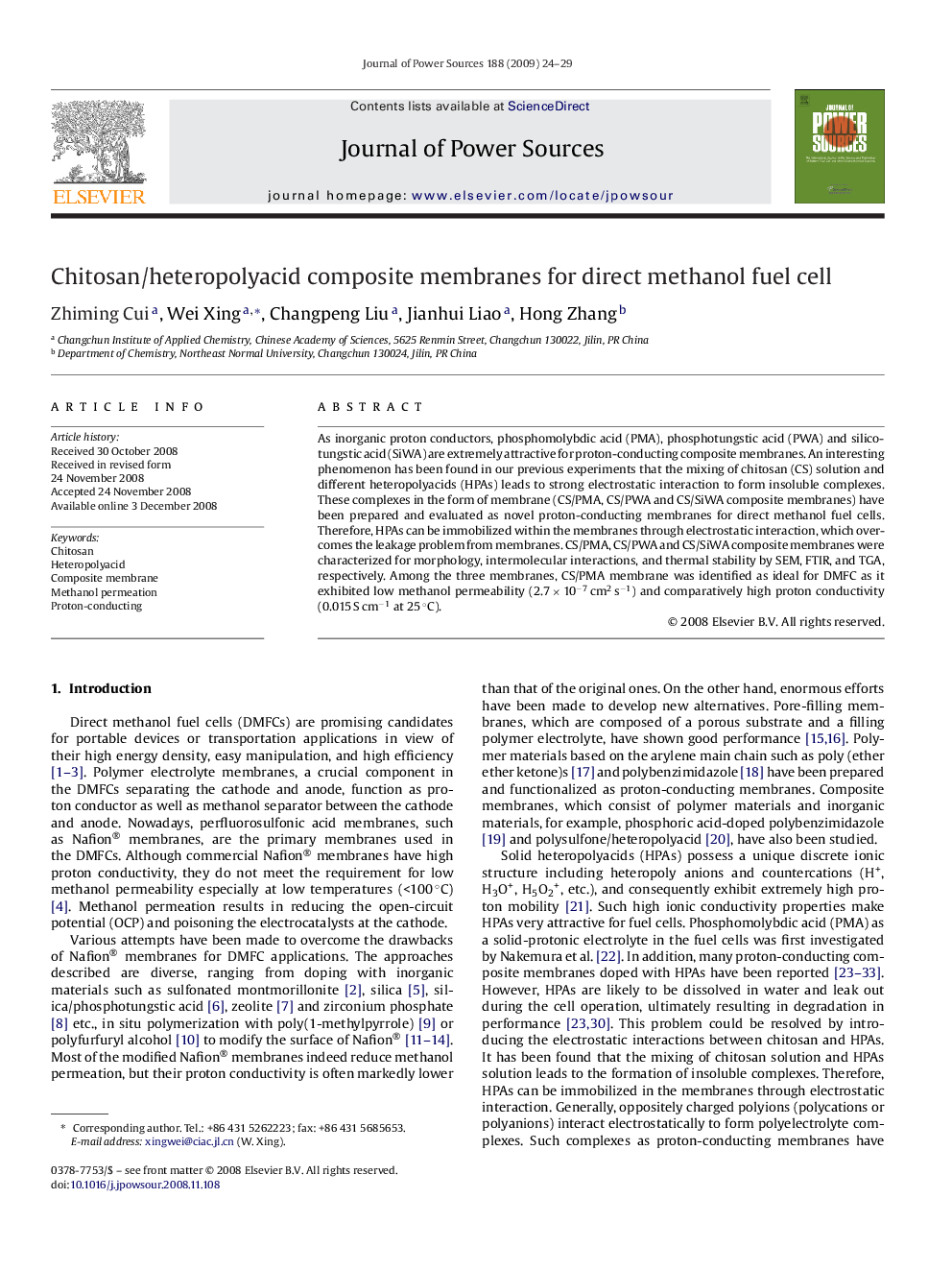| Article ID | Journal | Published Year | Pages | File Type |
|---|---|---|---|---|
| 1294309 | Journal of Power Sources | 2009 | 6 Pages |
As inorganic proton conductors, phosphomolybdic acid (PMA), phosphotungstic acid (PWA) and silicotungstic acid (SiWA) are extremely attractive for proton-conducting composite membranes. An interesting phenomenon has been found in our previous experiments that the mixing of chitosan (CS) solution and different heteropolyacids (HPAs) leads to strong electrostatic interaction to form insoluble complexes. These complexes in the form of membrane (CS/PMA, CS/PWA and CS/SiWA composite membranes) have been prepared and evaluated as novel proton-conducting membranes for direct methanol fuel cells. Therefore, HPAs can be immobilized within the membranes through electrostatic interaction, which overcomes the leakage problem from membranes. CS/PMA, CS/PWA and CS/SiWA composite membranes were characterized for morphology, intermolecular interactions, and thermal stability by SEM, FTIR, and TGA, respectively. Among the three membranes, CS/PMA membrane was identified as ideal for DMFC as it exhibited low methanol permeability (2.7 × 10−7 cm2 s−1) and comparatively high proton conductivity (0.015 S cm−1 at 25 °C).
